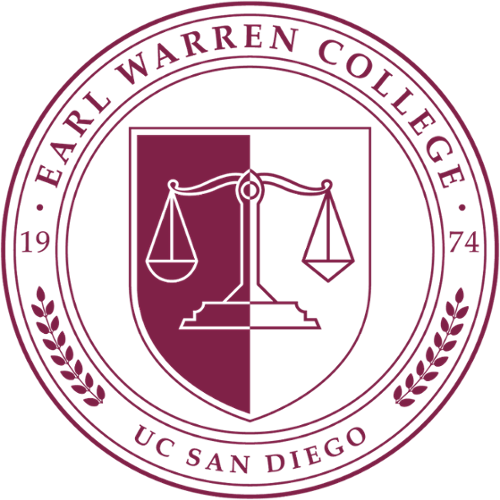Ethics and Society
All students will eventually confront moral problems with social, political, or legal dimensions in their roles as citizens, scholars, professionals, parents, members of their communities, and as human beings with responsibilities to other nations and peoples. Warren College designed Ethics and Society, PHIL or POLI 27 and PHIL or POLI 28, to help students learn how to make moral decisions, engage in moral reasoning, and understand the positions of others in the great moral conflicts of our time.
Generals, politicians, executives, and judges often make decisions for many other people that can have widespread ramifications. The Ethics and Society courses demand that students examine essential moral and ethical questions.
- Should we go to war in order to protect our national security or the security of an ally? If so, how should the war be conducted?
- Should we build factories in third world countries that employ people who thereby acquire the means to sustain themselves, if we do so by exploiting them, or by polluting their air, water, and land?
- Do individual persons have the right to decide whether to end their lives without interference from the state?
These questions, and others like them, are not merely academic—they are very real. Democracy works only when citizens have sufficient knowledge and understanding of moral theory and practice to make decisions that have a significant impact on the lives of others.Warren college is dedicated to the ideal of informed, engaged, morally sensitive citizenship, and considers Ethics and Society to be a principal means of achieving this ideal.
PHIL 27 or POLI 27 provides an overarching view of these issues and PHIL 28 or POLI 28 focuses on one (or more) topics in detail. In these courses, students will learn how to write, think, and speak about these issues.
